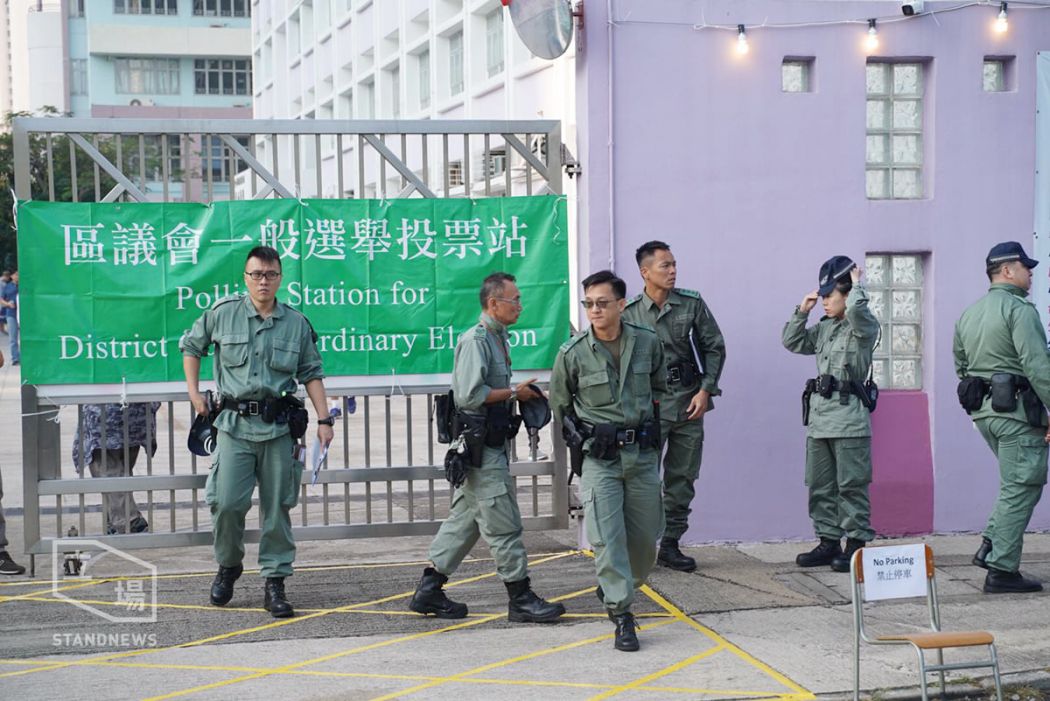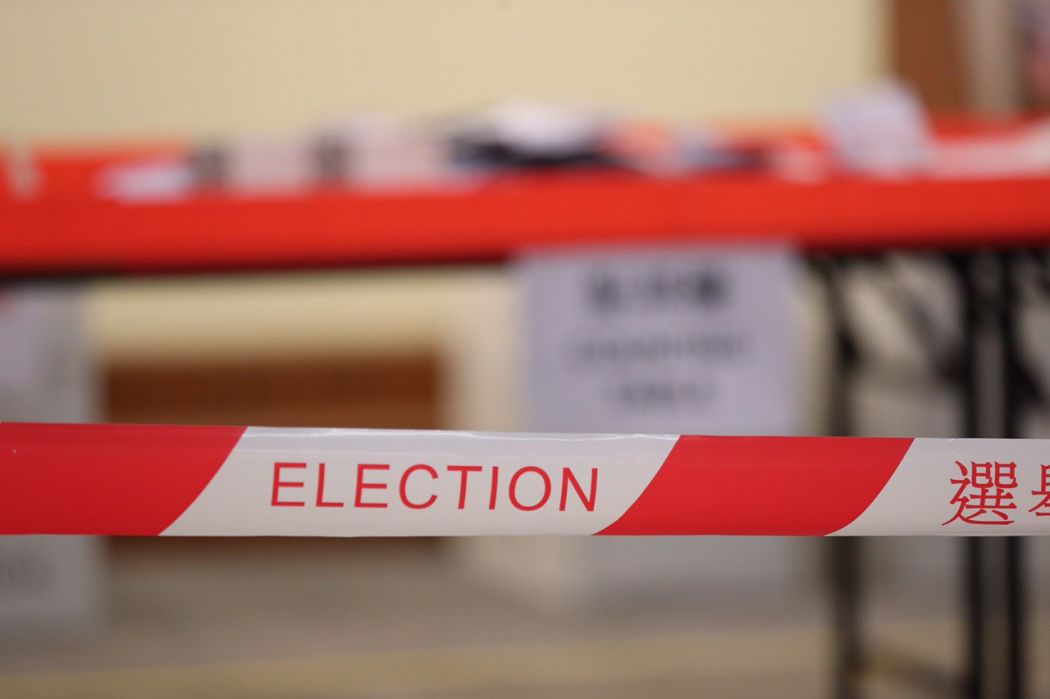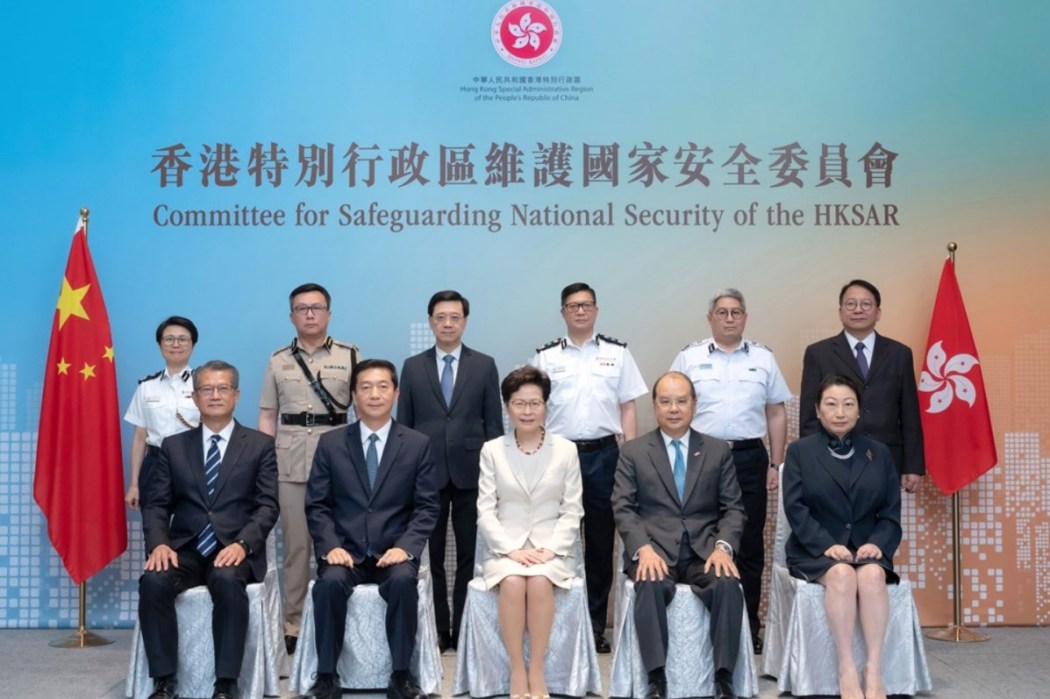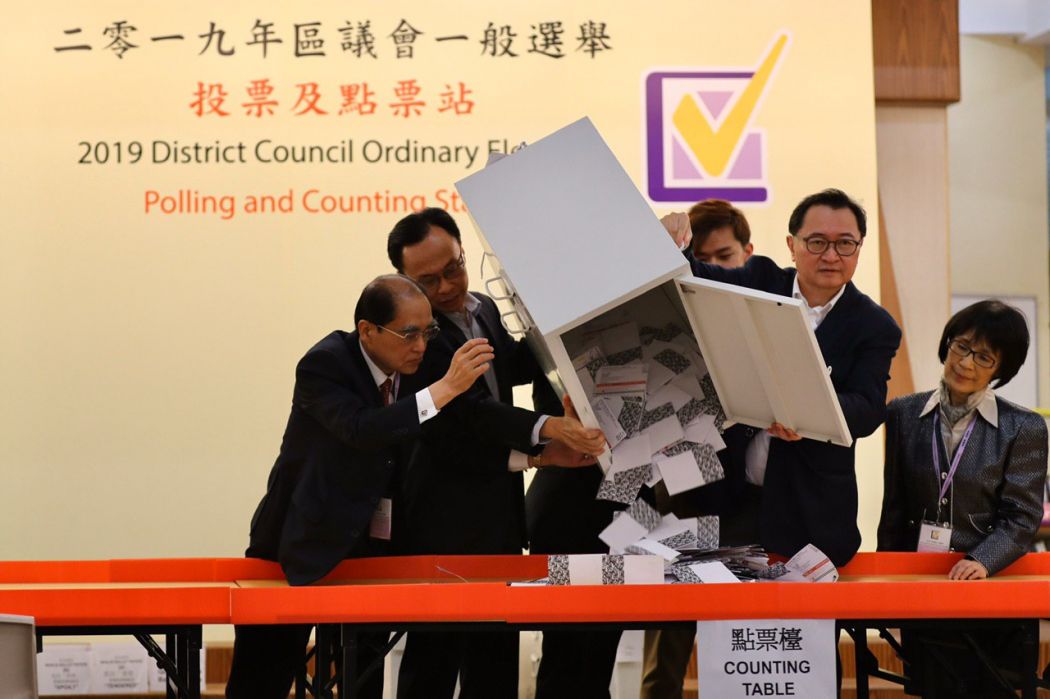Potential candidates in future Hong Kong elections will be screened by a special national security unit within the city’s police force before being further vetted by two committees to establish their suitability to stand at the polls.

On Tuesday, China’s top legislative body approved sweeping changes to Hong Kong’s electoral system. The changes are laid out in a new version of the Basic Law’s Annexes 1 and 2, which stipulate how the city’s leadership, its election committee, and the legislature are elected.
After potential candidates gain the minimum amount of nominations required, the national security unit of the Hong Kong police will conduct an initial screening of individuals hoping to run in the city’s top-level elections for the office of chief executive, the chief executive election committee and the legislature, according to the new version of the Basic Law’s annexes 1 and 2 handed down by Beijing on Tuesday.

Findings from the police review will be handed to the city’s national security committee. The committee will determine whether the potential candidates support the Basic Law and are loyal to the Hong Kong Special Administrative Region.
Read: Article 8 of the amended Basic Law Annex I [click to expand]
“The Committee for Safeguarding National Security of the HKSAR shall, on the basis of the review by the department for safeguarding national security of the Police Force of the HKSAR, make findings as to whether a candidate for Election Committee member or for the office of Chief Executive meets the legal requirements and conditions of upholding the Basic Law of the Hong Kong Special Administrative Region of the People’s Republic of China and swearing allegiance to the Hong Kong Special Administrative Region of the People’s Republic of China, and issue an opinion to the Candidate Eligibility Review Committee of the HKSAR in respect of a candidate who fails to meet such legal requirements and conditions.”
“The national security committee and the national security police can make more comprehensive findings as to whether they are fit as candidates, and relevant requirements such as whether they support Basic Law or are loyal to the HKSAR government,” said Beijing loyalist Tam Yiu-chung – Hong Kong’s sole delegate to the Standing Committee of the National People’s Congress (NPCSC).
The national security committee is headed by the city’s Chief Executive Carrie Lam and has China Liaison Office Director Luo Huining as its advisor. Other than the top three secretaries of the government and the director the Chief Executive’s Office, the remaining five members of the committee are the heads of the city’s security forces, including the secretary for security, the police commissioner, head of national security police, immigration and customs.

It will submit a recommendation document to the election vetting committee, before the latter finally approves their candidacy in accordance with the recommendation. The candidates are then allowed to run in Hong Kong’s elections.
Neither the recommendations of the national security police nor the national security committee, as well as the decisions of the vetting committee can be the subject of legal challenge, according to the new annexes.
‘extremely strange’
While media reports and an earlier NPC decision indicated election candidates would be vetted by a committee, there had been no mention of vetting by the police.
Democratic Party leader Lo Kin-hei slammed the new measure: “It is very strange that the administration is now governing whether anybody can run in the Legislative Council election.
“We can also see that the police will have a very strong say in whether or not a person can run for an election, which is extremely strange and extremely inappropriate. I think these kind of changes will not bring any good to Hong Kong,” Lo said.
Functional Constituency
Separately, the functional constituency component of the revamped legislature – special interest groups who vote – will now have 30 seats instead of the original 35.

The District Council seats in the functional constituency component will be removed and replaced by a new sector comprised of Hong Kong representatives to the National People’s Congress, the Chinese People’s Political Consultative Conference and other relevant national organisations.
Functional constituency sectors that pan democrats were seeking to challenge in the now-postponed 2020 LegCo election — including the catering, sports, performing arts, culture and publication, textiles and garment, retail and wholesale, and IT (renamed “technology and innovation”) constituencies – will no longer have individual voters but only corporate electors.
The previously separate medical and health services sectors traditionally occupied by pan-democrats will be combined into one single “medical and health service” constituency. It will continue to be elected by individual voters.
Support HKFP | Policies & Ethics | Error/typo? | Contact Us | Newsletter | Transparency & Annual Report | Apps
Help safeguard press freedom & keep HKFP free for all readers by supporting our team
























